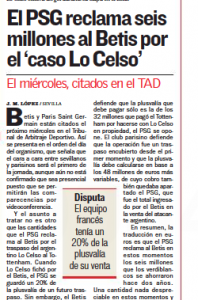The summer 2019 transfer window saw a long saga develop between Real Betis and Tottenham Hotspur over the transfer of Giovani Lo Celso.
As is often the case, the buying club, Spurs, wanted to pay much less than the sellers were asking, and the whole thing turned into a drama. At one point, the Premier League side turned their attention to Bruno Fernandes, only to have their efforts later mocked by Sporting.
That offer was €45m plus a further €20m in bonuses, with the Lisbon club’s president Frederico Varandas later confirming the amounts, and saying: “The only serious proposal, which was still only verbal, was a €45m bid from Tottenham for Bruno Fernandes, plus €20m in goals.
“Twenty million in goals which were about Tottenham becoming the Premier League winners, which they never were, and winning the Champions League, which has also never happened. So I found these goals extremely imposs…. difficult to accomplish. And I understood not to sell Bruno Fernandes.”
Manchester United later signed the Portugal international for €55m plus €25m in bonus payments.
Tottenham turned their attention back to Lo Celso after failing with Fernandes, and they eventually reached an agreement which would see them loan the Argentine for €16m, and then have a €32m buying option.
At the time, the media close to Real Betis presented it as a permanent transfer in all but name.
Betis were due to pay PSG, Lo Celso’s former club, 20% of the gains from a transfer, however, the Seville club insisted this only applied to the €32m, and not the €16m paid for the loan.
The French club disagreed, and as reported by AS on Thursday, this has all ended up at the Court of Arbitration for Sport. A hearing is scheduled for next Wednesday, when both sides will put forward their cases.
 Looking at previous CAS decisions, Betis may have a difficult task. When Marcos Rojo moved from Sporting to Manchester United in 2014, investment firm Doyen were owed a percentage of the deal.
Looking at previous CAS decisions, Betis may have a difficult task. When Marcos Rojo moved from Sporting to Manchester United in 2014, investment firm Doyen were owed a percentage of the deal.
Manchester United had sent Luis Nani the other way as part of the deal, with the attacker going on loan and his wages being covered by the Red Devils. Sporting didn’t want the value of that included in Doyen’s percentage, but CAS ultimately disagreed.

























